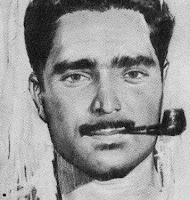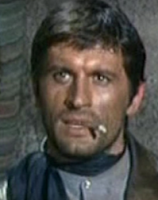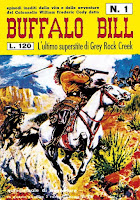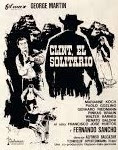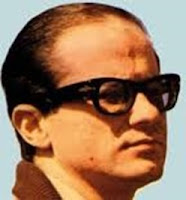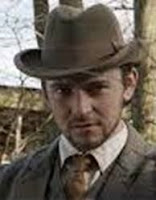BOOT HILL 2024
Gian Franco Reverberi
(composer) 11/12/1934 – 1/8/2024
Dana Ghia (actress) 7/13/1932 – 1/15/2024
José Lifante (actor) 6/3/1943
– 1/16/2024
Torsten Wahlund
(actor) 2/10/1938 – 1/16/2024
Ulrich Voß, Ulrich [voice actor] 6/8/1938 -
1/11/2024
Norman Jewison
[producer] 7/21/1926 – 1/20/2024
Sandra Milo (actress) 3/11/1933 – 1/29/2024
Don Murray (actor) 7/31/1929 – 2/2/2024
Damo Suzuki [singer,
musician] 1/16/1950 – 2/10/2024
Alain Dorval [voice
actor] 8/9/1946 – 2/13/2024
Gerard Barray (actor)
11/2/1931 – 2/15/2024
Ira von Fürstenberg
(actress) 4/17/1940 – 2/19/2024
Micheline Presle
(actress) 8/22/1922 – 2/21/2024
Paila Pavese [voice
actress] 9/23/1942 – 2/22/2024
Roberto Messina [stunts, actor] 1/2/1934 – 1/9/2024
Georg Riedel
(composer) 1/8/1934 – 2/25/2024
Charles Dierkop
(actor) 9/11/1936 – 2/25/2024
Angelo Nicotra [voice
actor] 4/10/1948 – 3/8/2024
Roberto Leoni
(writer) 11/16/1940 - 3/5/2024
Gigio Morra (actor)
8/26/1945 – 3/10/2024
Malachy McCourt
(actor) 9/20/1931 – 3/11/2024
Mino Giarda
[assistant director] 8/2/1928 – 3/20/2024
Türker İnanoğlu
[producer] 5/18/1936 – 4/2/2024
Antonio Cantafora (actor) 2/2/1944 – 4/20/2024
Margaret Lee
(actress) 8/4/1943 – 4/24/2024
Gabriella Andreini
(actress) 4/16/1938 – 4/28/2024
Jörg Hengstler [voice
actor] 10/31/1956 - 4/28/2024
Gisela Büttner [voice
actress] 7/15/1941 – 5/1/2024
Günter Rätz
(director, writer, animator) 5/30/1935 – 5/1/2024
Mark Damon (actor) 4/22/1933 - 5/12/2024
Philippe Leroy (actor) 10/15/1930 – 6/1/2024
Françoise Hardy (actress, singer) 1/17/1944 – 6/11/2024
Donald Sutherland (actor) 7/17/1935 – 6/20/2024
Walter Beck
(director) 9/19/1929 – 6/23/2024
Txema Blasco (actor) 7/13/1941
– 6/28/2024
Claudio Mancini (producer, actor) 3/24/1928 –
6/29/2024
Adolfo Bartoli
(cinematographer) 8/12/1950 – 6/30/2024
Robert Towne (writer)
4/2/1940 – 7/1/2024
Gianni Meccia (actor,
singer) 6/2/1931 - 4/9/2024
Robert Logan (actor) 5/29/1941
- 5/6/2024
Samuel Clemens
(director, writer) 8/16/1980 – 7/6/2024
Salvatore Puntillo
(actor) 7/27/1935 – 7/14/2024
Giancarlo Guardabassi
(singer) 8/21/1937 – 7/17/2024
Arnaldo Dell’Acqua (stuntman, stunt coordinator, actor) 5/14/1938
– 7/23/2024
Teresa Gimpera (actress) 9/21/1936 - 7/23/2024
Lou Carrigan (Antonio
Vera Ramirez) 7/2/1934 - 7/29/2024
Enriqueta Linares
[voice actress] – 1934 – 8/1/2024
Rainer Brandt (actor, voice actor) 1/19/1936 –
8/1/2024
Mitzi McCall [voice
actress] 9/9/1930 – 8/8/2024
Franco Daddi (stunt coordinator, stuntman, actor) 3/28/1935
– 8/11/2024
Sergio Donati (screenwriter) 4/13/1933 – 8/13/2024
Alain Delon (actor)11/8/1935 – 8/18/2024
Catherine Ribeiro
(actress) 9/22/1941 – 8/23/2024
Peter Rabenalt (composer)
7/16/1937 - 8/26/2024
Mirko Ivanković
(stuntman, actor) 3/1/1939 - 9/6/2024
Giacomo Dell’Orso
(conductor) 12/2/1931 – 9/9/2024
Kenneth Cope (actor)
4/14/1931 – 9/11/2024
Franca Bettoja
(actress) 5/14/1936 – 9/13/2024
David Graham [voice
actor] 7/11/1925 – 9/20/2024
Klaus Manchen (actor,
voice actor) 12/1/1936 – 9/27/2024
Ely Ron (actor) 6/21/1938 - 9/29/2024,
Ken Tobais (singer) 7/25/1945
– 10/2/2024
Elisa Montes (actress) 12/15/1934 - 10/9/2024
Mario Morra [film
editor] 1935 – 10/11/2024
Roger Browne [voice
actor] 4/13/1930 – 10/11/2024
Joan Frank Prado
(actor, cinematographer) 4/21/1959 – 10/14/2024
Ken Wood (Giovanni Cianfriglia) (stuntman,
actor) 4/5/1935 – 10/30/2024
Renato Serio
(composer) 10/5/1946 – 11/4/2024
Charles Dumont
(composer) 2/26/1929 - 11/18/2024
Lucian Iancu (actor)
2/3/1940 – 11/20/2024
Silvia Pinal
(actress) 9/12/1931 – 11/28/2024
Jean-Marie Pallardy
(producer, director, writer, actor) 1/16/1940 – 12/12/2024
Mircea Diaconu
(actor) 12/24/1949 – 12/14/2024
Marisa Paredes
(actress) 4/3/1946 – 12/17/2024
Guillermo Antón
(actor, singer) 7/7/1940 – 12/19/2024
Maurizio Centini [cinematographer] 12/13/1940 – 12/27/2024













